How To Prevent Hair Loss Due To Thyroid Problem
Hair loss is a condition that can be blamed for numerous reasons; however, at the core, the problem remains the same throughout- follicle. Suppose that due to certain underlying conditions or diseases like thyroid, your body's hormonal balance gets thrown off. In that case, it could affect the hair follicles, and you may experience shedding heavier than usual.
Especially in cases where conditions like hypo- or hyperthyroidism have been present for quite some time, you may begin to notice that your hair is thinner than it used to be. How sooner your hair loss becomes apparent depends on the hair cycle that your body has.
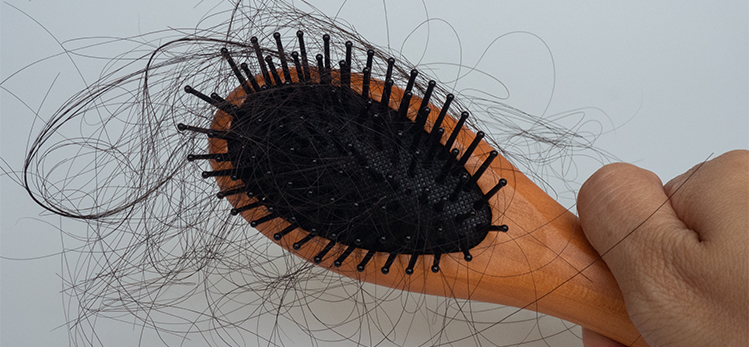
Regardless, hair loss is a social stigma and leads people to gradually become conscious of self-image. Primarily, for this reason, it makes sense to pinpoint the cause of hair loss and devise treatment accordingly. In the case of conditions like thyroid, hair loss can drastically worsen if left alone
Let's shed some light on how to identify hair loss due to thyroidism.
How to Identify Hair Loss Due to Thyroid
Hair loss caused due to hyperthyroidism and hypothyroidism can be identified by looking at a few warning signs in the pattern of hair loss you are experiencing. However, since there can be numerous other reasons causing shedding as well, it is best to get an official diagnosis done by a medical professional to accurately determine the cause. Meanwhile, if you suffer from thyroidism, here are a few signs to watch out for:
Hair Thinning
Thyroid causes hair thinning uniformly all over your scalp. Unlike conditions like psoriasis or alopecia, you won't notice any specific bald patches or problem areas on your scalp; your hair would feel thinner and sparse all over. If you have thyroid and you notice this pattern, it is time to see a dermatologist.
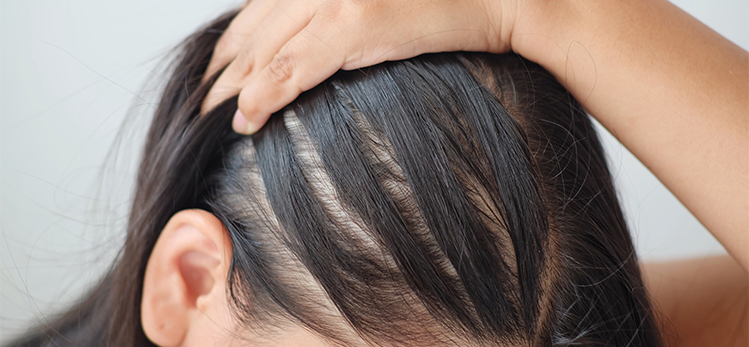
Shedding in Other Areas
Another warning sign that your hair loss might be due to the thyroid is shedding in areas apart from your scalp - like eyelashes, eyebrows, arms, or legs. Since the thyroid affects follicles all over the body, it isn't surprising to see hair and follicle health deteriorating all over the body, not just on your head.
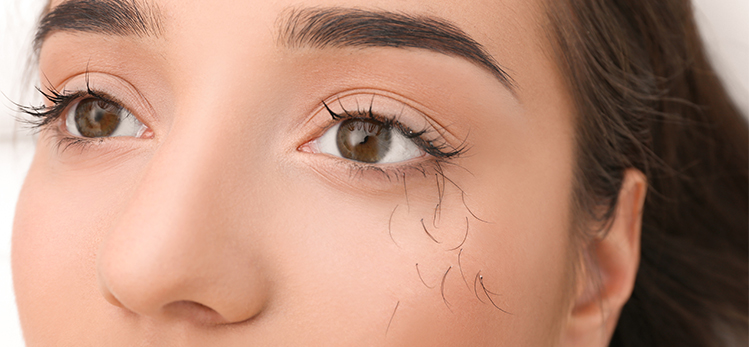
Excessive Shedding
This is a symptom that occurs in people who are sick or taking strong medication. If you notice hair loss that goes beyond the normal of about 100 strands a day, then it is a cause for concern. Visit your medical practitioner to rule out thyroidism, or visit your dermatologist to find the underlying cause of hair loss.
If you notice that all of the symptoms listed above apply to you, consult your medical practitioner and a dermatologist for ways to control your thyroidism and hair loss.
How to Prevent Hair Loss Due to Thyroid
There are ways to control hair loss due to thyroid and have your hair grow back. It requires a course of discipline and takes several months, but if followed with dedication, you will certainly see results.
1. Doctor-approved treatments- In case you do get diagnosed with a thyroid condition, your doctor will likely try to determine how severe it is. In case of mild thyroid, you will be prescribed medication to take on a timetable. This is the first step you must take to help your hair grow back. As the medication takes effect and the thyroid comes under control, hair will grow back in a few months.
2. Transplants- In case you don't get desired results even after getting treated for thyroid, you may consult your dermatologist for a transplant treatment that works with thyroid. Consulting with your doctor is important because a transplant is a graft procedure and may cause complications in your condition.
3. Using products and hair accessories that don’t cause friction- Taking care of your hair with a thyroid condition is the next step to combating hair loss. Use accessories that don't weaken or break your hair strands. Use satin or silk pillowcases so your hair gets gentle treatment as you sleep. You can use loose scrunchies to tie your hair so that it doesn't get damaged. Taking such baby steps for haircare goes a long way.
4. Use professional products- It is best to use professional hair care products if you have thyroid because home-cooked remedies may not be as effective. Professional products improve hair quality and strength, which is what you need if you have a thyroid.
Avoid supplements as they may interfere with medication
Conclusion
Hair loss isn't necessarily a symptom of thyroid problems unless your condition is severe. It is thus recommended to get an expert diagnosis first before adopting any treatment or coming to conclusions. It is daunting to be dealing with both - thyroid and hair loss. At the same time, but with advancements in medical science, better treatments are available for both.
Myth Busters HairFall
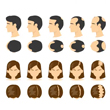
Androgenetic Alopecia - Everything You Need To Know
Have you been experiencing excessive hair fall over a prolonged period of time? It could be an early sign of androgenetic alopecia. It is a hair loss disorder common in both genders and can lead to progressive thinning and even baldness in some patients if not caught and treated early.

How To Make Hair Grow Faster For Men
A head full of healthy hair is a matter of confidence. Hair has its own mechanism of growing and shedding, and it is when this mechanism is thrown off that growth is hindered. Especially in the case of males, hair growth faces a lot of hiccups that can easily be managed.
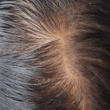
Female Pattern Baldness - Causes & Treatments
Have you suddenly noticed an increase in the number of hair strands on your pillow in the morning? Or is your ponytail getting thinner by day? Well, you might be suffering from female pattern baldness. While that does sound scary, identifying it early on is key to treating this condition effectively. So keep reading to know what this is, how you can identify it, and most importantly, what treatments you can avail of to get your beautiful lustrous hair back.
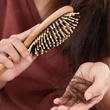
What Are The Reasons For Hairfall?
Almost everyone experiences some amount of hair thinning over the years. Shedding around 50 to 100 single strands of hair per day is considered normal. However, losing more than 150 strands a day, experiencing sudden thinning, or developing circular bald patches on your scalp are reasons for concern. Hair loss occurs when new hair doesn’t grow fast enough to replace the amount of hair you lose daily. Hair can fall due to various reasons, with hereditary hair loss and poor nutrition being the most common hair fall reasons.

Expert Approved Tips For Hair Growth
What can be more debilitating than seeing hundreds of hair strands shedding from your scalp every time you brush your hair? Also, excessive molting occurs during seasonal changes that can be very stressful for you. Although it’s okay to lose between 50-100 strands every day, according to the American Academy of Dermatology, the problem occurs when you start shedding more than normal. But that doesn’t mean you have to feel helpless as there are ways to grow your hair back. Even if you are coping with baldness or alopecia, certain hair growth tips from dermatologists can come to your rescue. Read on to discover how these tips can be your savior when abnormal hair fall problems are in sight.
Trending Videos
+ 3 Sources
LMRC - GGI-CO-A2-DMA-300026127-300026127-WM-J21-282
© 2021 Dr. Reddy’s Laboratories Ltd. All rights reserved.